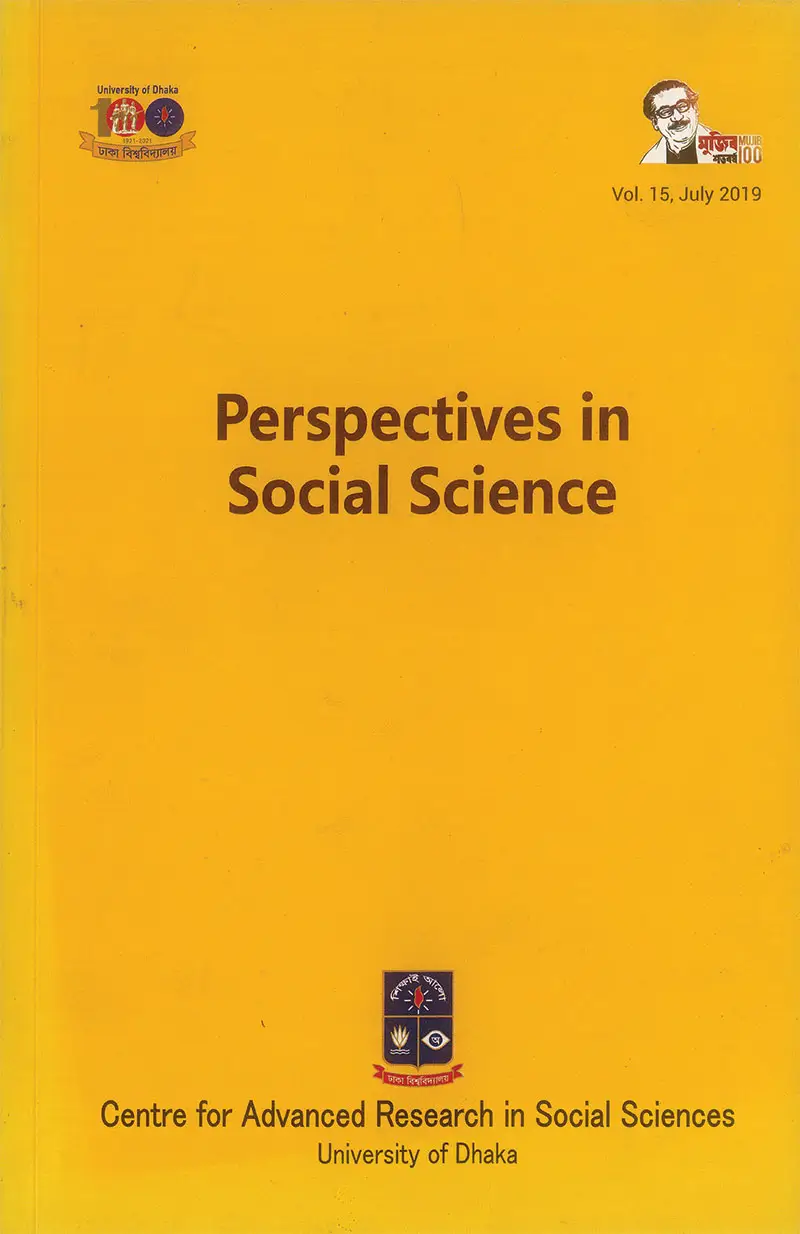
Perspectives in Social Science
Volume 15 July 2019
ISSN : 2957-5001
Perspectives in Social Science
Fifteenth Amendment to the Constitution of Bangladesh: Reflections on the "Spirit of 1971"
Perspectives in Social Science
Volume 15 July 2019
DOI:
ISSN : 2957-5001
Abstract
The Fifteenth Constitutional Amendment adopted by the Awami League Government in 2011 had as its objective the restoration of secularism, socialism, Bengali nationalism and democracy as the basic principles of the Constitution of Bangladesh. These were the high ideals evolved and cherished by the progressive people of Bangladesh during their struggle for independence from the oppressive Pakistan regime and these ideals formed the foundational principles of the sovereign nation state of Bangladesh when it emerged fifty years ago in 1971. Despite laying such foundation, the communal and political forces averse to these ideals gained ascendency under the auspices of the autocratic regimes of two military men. Tacit and open appeasement of these forces, especially the fundamentalist political Islam, continued even after formal restoration of democracy in 1991 under the compulsion of electoral politics. The present article looks into the implications of the Fifteenth Amendment and its effect on restoring the spirit of the Liberation Struggle. It mainly finds that the retention of Islam as state religion by the Fifteenth Amendment, even while restoring secularism as a basic principle and state policy in the Constitution, may be necessitated by the compulsion felt by the Awami League for engaging in practical politics of precluding the scope for fundamentalist groups to exploit the religious sentiments of the people, but this compromise has not helped and will not help to save the country from descending into the hold of the anti-secular communal forces.
Keywords:
Environmental Justice, Recognition, Participation, Justice to environment, Moral standing of Non-human Species, Dignity
